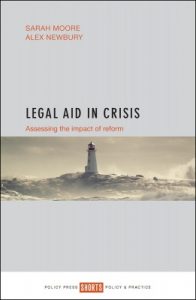By Dr Leanne Smith, Senior Lecturer in Law (School of Law and Politics, Cardiff University) and Dr Emma Hitchings, Senior Lecturer in Law (University of Bristol Law School).*

In mid June 2017, the report of our Bar Council commissioned research on fee-charging McKenzie Friends in private family law cases was published (the full report can be accessed here and an executive summary here).
One of the report’s key messages is that we found little evidence of McKenzie Friends seeking to exercise rights of audience on a regular basis and plenty of evidence that the bulk of the work done by McKenzie Friends is done outside of court. The work McKenzie Friends do in court, we said, is ‘the tip of the iceberg’. This was the finding that the Pink Tape blog outlining Lucy Reed’s perspective on the research focused on, indicating that it was not at all surprising. We hope we can be forgiven here for indulging in a few words in defence of the utility of the research.
We readily accept that many in the legal professions have been aware for some time that paid McKenzie Friends operate predominantly outside court, but research has an important role to play in interrogating anecdotal evidence and providing more systematically derived evidence in order to validate or debunk it. This is no less true because perceived experience is validated by a set of results. In this instance, our hope is that the findings of the research will function as a turning point for discussion on the subject of fee-charging McKenzie Friends in a way that the observations of some professionals who encounter them has not. In addition there are, of course, some more granular observations that we consider important buried in our report, though we will resist spoilers for those who haven’t yet finished reading it…


